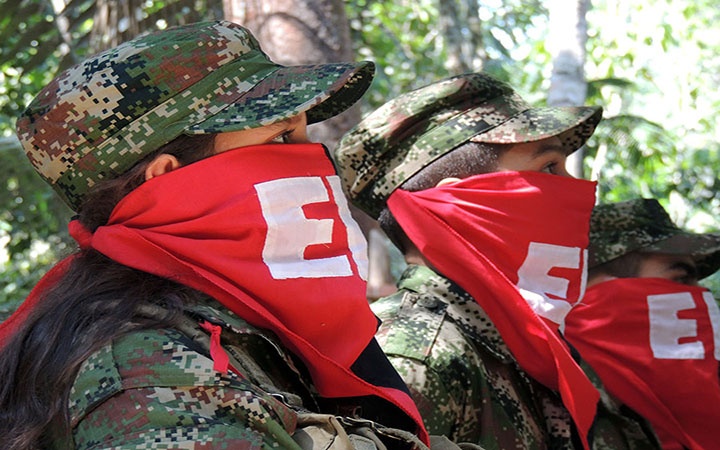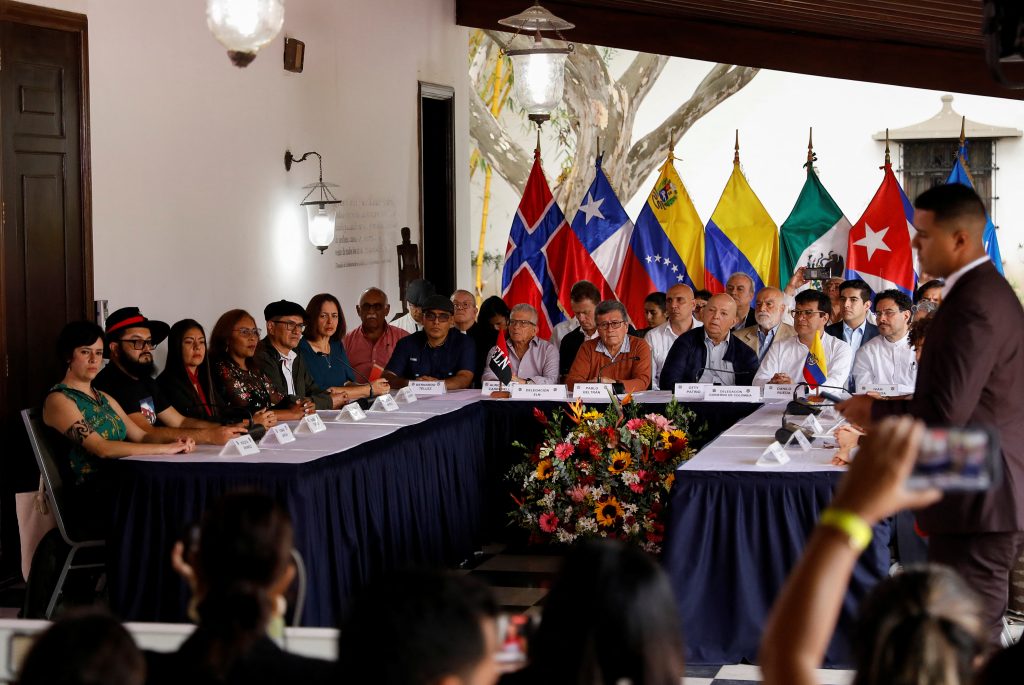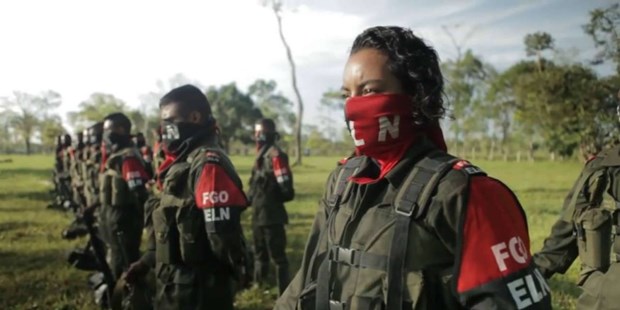Colombia’s Marxist rebels, the National Liberation Army (ELN), killed 9 soldiers on Wednesday 29th March in an attack on a military base.
The base was stormed in a region experiencing a total counter-insurgency offensive. Close to Venezuela’s border, scores of leftist rebel leaders have been covertly neutralised by US-sponsored mercenaries – known as ‘rambos’ by ELN rebels – around the area in recent months.
Last year a leaked audio recording from an army commander confirmed that not only foreign mercenaries, but also drug cartels are being unleashed as paramilitary proxies against left-wing insurgents. The military base bombarded by the guerrillas is known as a strategic outpost designed to protect the activities of multinationals invested in extractives. Army General Helder Giraldo admitted that the fallen soldiers were protecting the Caño Limón-Coveñas oil pipeline against attacks. This is the same pipeline that has provoked a long history of protests by campesino and indigenous groups, who complain of abuses by military units acting on behalf of extractive companies, alongside the pollution and devastation of their small-scale agriculture and communal lands.
Occidental Petroleum – the US oil company enjoying close connections with the Republican Party – directly paid the Colombian army to protect its private property in the region where the recent attack took place. 7 of the 9 soldiers killed in the assault on the military base were forcefully recruited into the army based on a “conscription” policy that compels campesinos to take up military service. 8 more soldiers were injured – although given the Colombian state’s reputation for artificially reducing the number of casualties for propaganda reasons – it could be many more. Self-produced missiles – ‘ramplas’- were launched to take over the military base. The rampla has been operated with devasting effect against military infrastructure repeatedly in recent years. Without advanced explosives, the insurgents would find it extremely difficult to threaten military bases.

The international black market for advanced weaponry is notoriously closed and controlled by Western intelligence agencies, according to former Colombian rebel leaders I have interviewed – hence why rebel groups say it is necessary to produce their own advanced weapons capabilities.Colombia’s Defence Minister Ivan Velasquez condemned the storming of the base as an “attack on peace”. While the social-democratic President Gustavo Petro announced on Twitter that the soldiers were “assassinated by those who today are absolutely far from peace”. For their part, the ELN claims they are merely responding to intensive counterinsurgency activities conducted by US-sponsored state and mercenary forces – including under the “left-leaning” presidency of Gustavo Petro.
Indeed, in January 2023, Petro called for the army to step up its military offensive against the ELN after the two parties failed to agree a ceasefire. Petro’s government has been under constant pressure from dominant class interests, especially the corporate media, not to pursue his ‘total peace’ agenda with left-wing rebels. El Tiempo and Semana – Colombia’s most politically connected and corporate media outlets – are publishing daily hit pieces against the president and his peace negotiation agenda. The political and economic elite know very well that any peace agreement with left-wing guerrillas like the ELN would likely involve broader structural changes weakening the neoliberal order. The tiny percentile of Colombians who have long wielded political and economic power have much to lose in the fight against the rebels.

Formed in 1964 under the guidance of Che Guevara, the ELN are calling for a constituent assembly that places workers and campesino forces at the centre. The attack on the military base arguably plays into the hands of the oligarchic interests seeking to sabotage the peace process.
Corporate media domestically and internationally have been foaming at the mouth in recent weeks and widely broadcasting ELN’s offensive – completely divorcing it from the broader context of the civil war, while portraying ELN as mindless perverse aggressors. Claims by the “international community” and Western-sponsored “human rights groups” that the attack was “unprovoked” ignores the reality of the war on the ground.
The ELN is strong in Catatumbo – the region where the base was stormed – precisely because dominant class interests have been laying waste to campesino lives for decades. As far back as the 1960s, workers and campesino groups in Catatumbo complained of systematic human rights abuses being committed by multinational corporations and military forces.
With Colombia’s political economy having been increasingly opened up to processes of transnationalisation over recent decades, the situation for campesinos and workers has deteriorated further. Millions of campesinos across Colombia have been economically compelled by the dynamics of capitalist accumulation – a category of ‘forced displacement’ erased from the definitions of Western-aligned “human rights groups” – to desperately flee their rural homes and into squalid slums – where unemployment, crime, and degradation awaits them. Other campesinos have desperately struggled to survive by producing coca – the key ingredient for cocaine.
This is the context in which the ELN’s recent offensive took place. Far from being an unprovoked attack against a military base, there is a bloody history and context behind the attack – one ignored by the mouthpieces of the dominant classes for clear ideological reasons.
Oliver Dodd, is a journalist and doctoral candidate covering civil war and peace-making in Colombia. He can be followed on Twitter @OliverCDodd.



